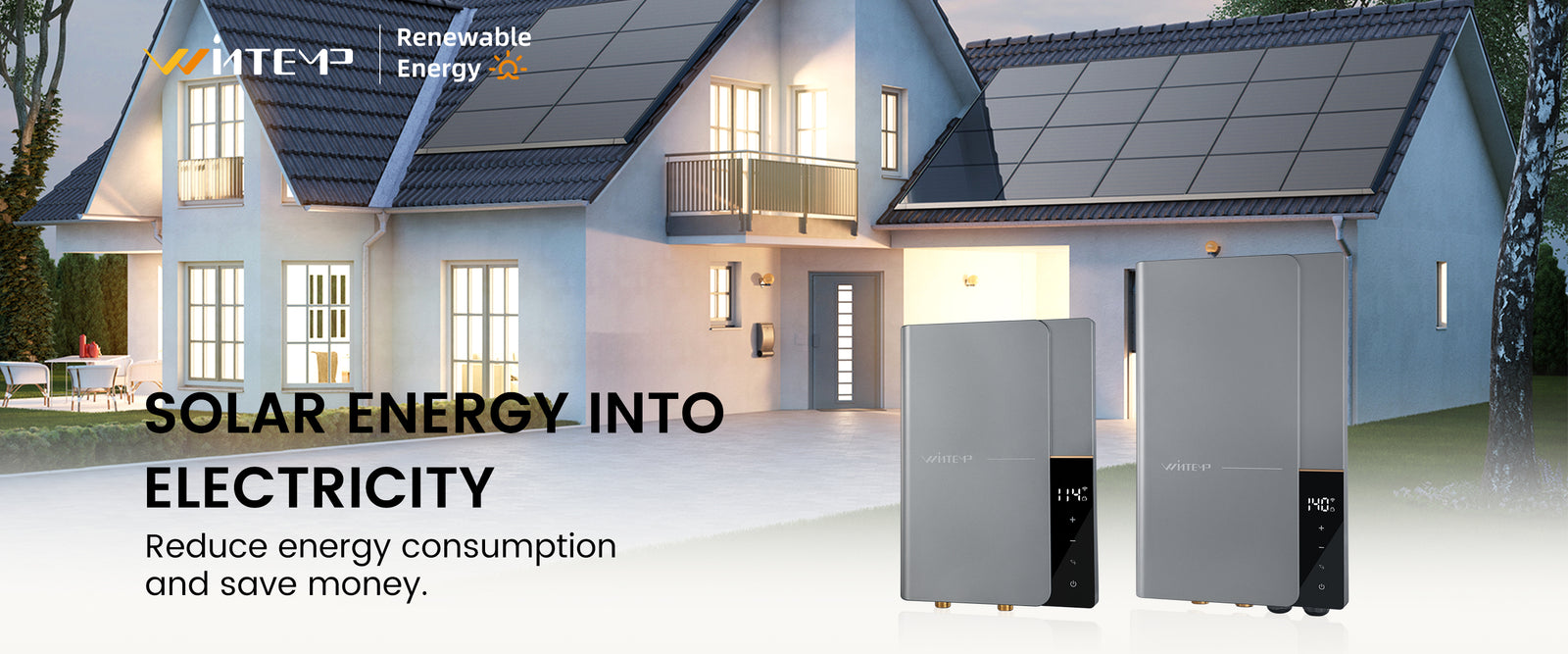As the global push towards sustainability continues, integrating renewable energy sources with home heating systems, particularly tankless electric water heaters, is becoming a significant trend. This article provides a detailed examination of the technical aspects, cost-benefit analysis, and potential environmental impacts of combining tankless electric water heater technology with renewable energy sources such as solar and wind, while also highlighting the innovative contributions of Wintemp in this field.

Technical Details and Implementation
Tankless electric water heaters operate on an on-demand basis, avoiding the energy waste associated with traditional storage water heaters. When integrated with solar photovoltaic (PV) panels or solar thermal systems, these heaters can convert solar energy into electrical energy more efficiently, potentially reaching near-zero operational costs. For instance, a typical household installing a 5-kilowatt solar PV system can generate enough electricity during the day to meet all its hot water needs.
Specifically, Wintemp’s latest tankless electric water heaters are equipped with smart technology that automatically adjusts power output based on household energy consumption patterns, optimizing energy efficiency. Additionally, these devices typically feature temperature sensors that ensure water temperature remains constant, providing a comfortable user experience while minimizing energy wastage.

Economic and Environmental Benefits
Although the initial investment in a system that combines tankless electric water heaters with renewable energy is higher, this one-time investment can pay off by reducing energy bills. Studies indicate that applying this system to an average household can save up to 40% annually on energy costs.
The environmental benefits are equally significant. Due to the high efficiency of these systems and the use of renewable energy, carbon dioxide emissions can be substantially reduced. For example, according to Wintemp’s internal data, each installation of such a system can reduce carbon emissions by an average of about 3 tons per year, equivalent to the effect of planting several hundred trees.
Policy and Market Drivers
Government support policies and subsidies play a crucial role in promoting the widespread adoption of this technology. In many countries, governments provide subsidies for the installation of solar PV panels and tankless electric water heaters, reducing the financial burden on users. Additionally, as consumer demand for eco-friendly and energy-saving products increases, the market demand for these types of products continues to grow.

Conclusion
In summary, the integration of tankless electric water heaters with renewable energy sources is one of the key trends in future home energy solutions. Wintemp is leading this trend through continuous innovation and optimized product design, not only aiding environmental protection but also providing cost-effective energy solutions for consumers. With advancements in technology and support from policies, this solution is expected to gain broader application globally.

